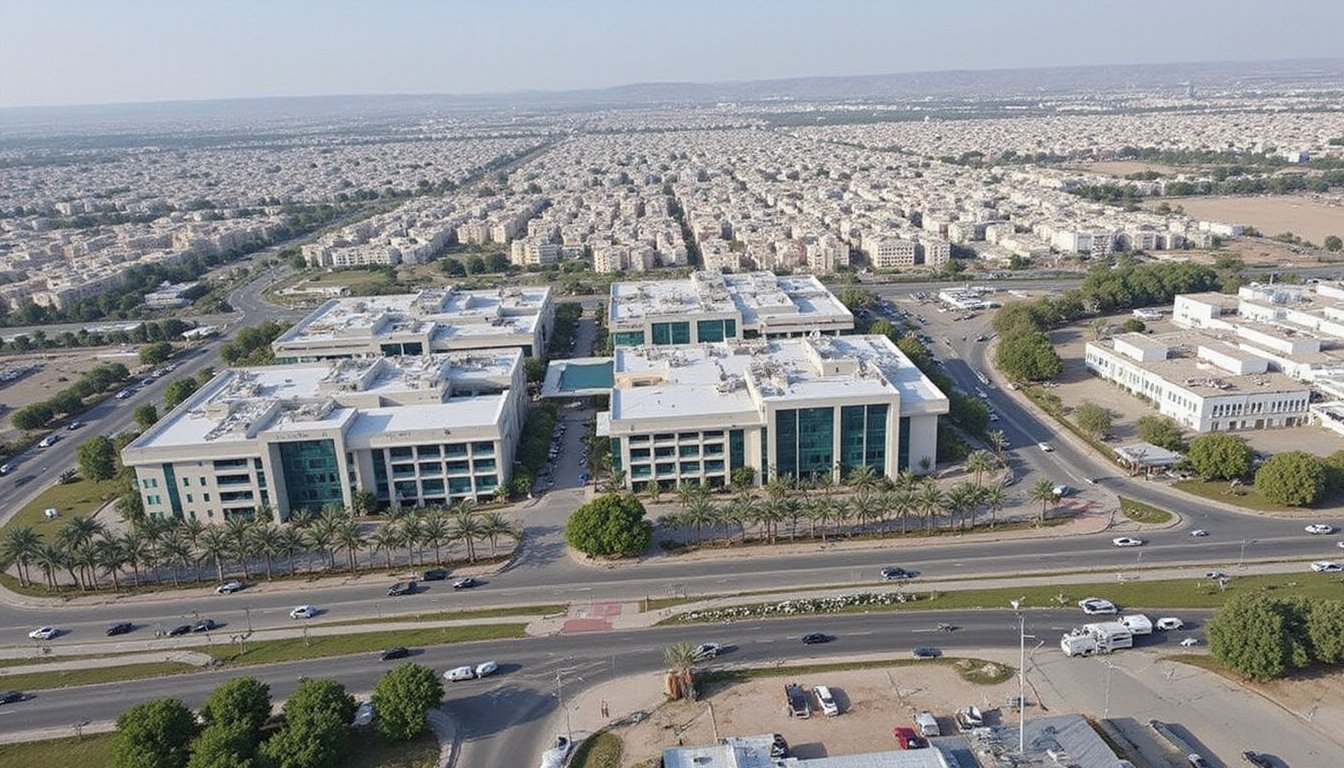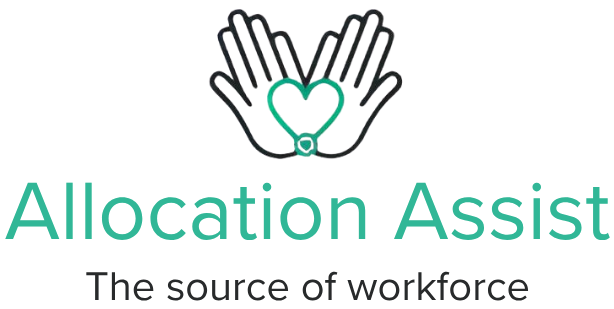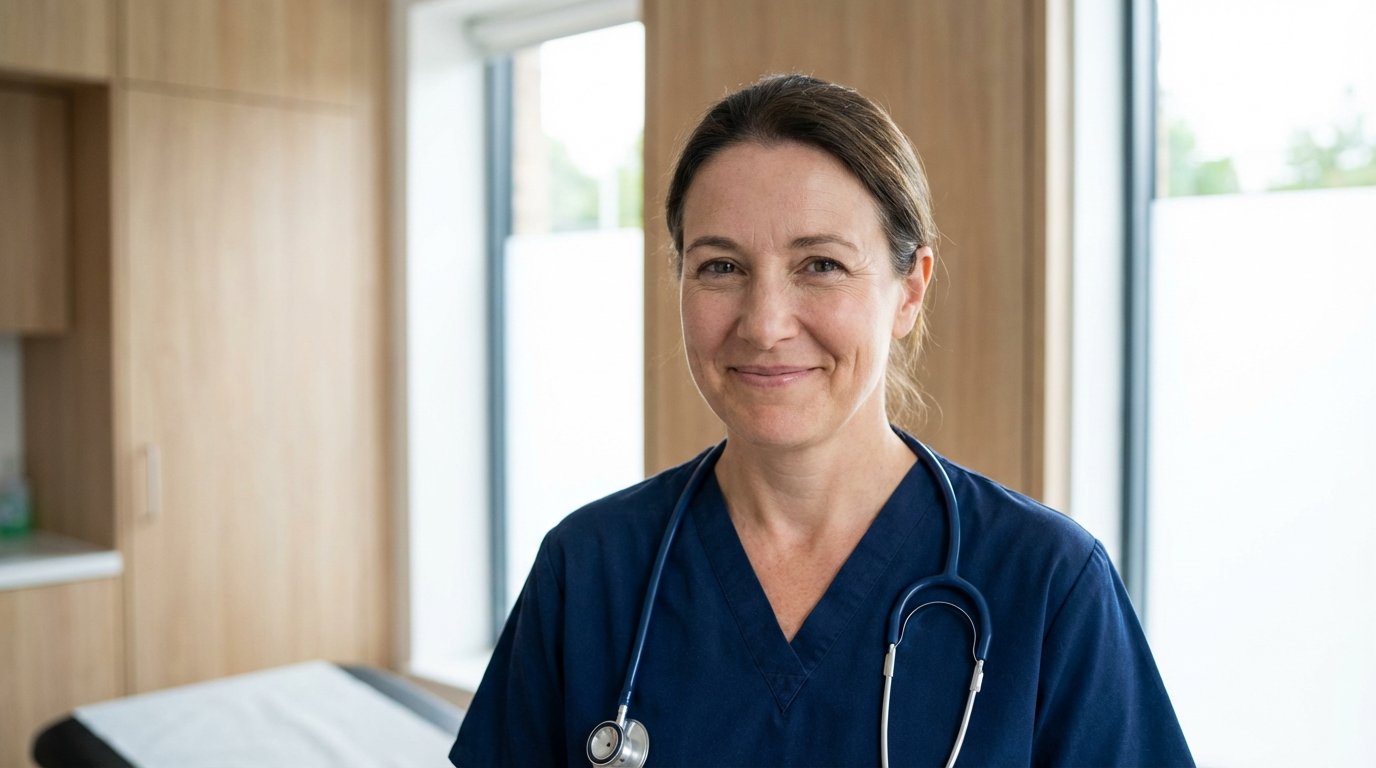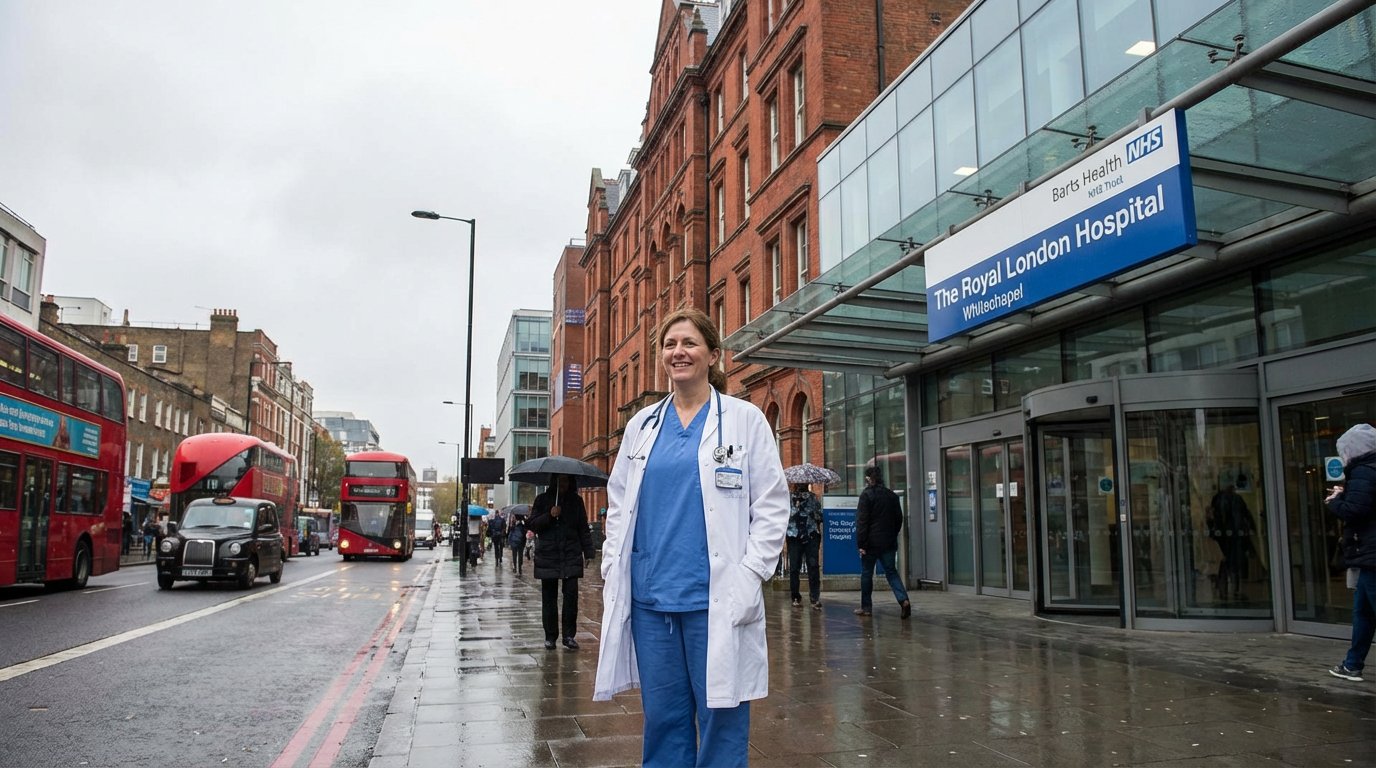Dubai’s healthcare sector offers you exceptional career growth, with market revenues set to exceed $4.6 billion by 2025. You’ll find tax-free monthly salaries ranging from AED 25,000-110,000+, plus substantial benefits including housing and education allowances. Both public and private employers like DHA and Mediclinic provide structured advancement paths, while specialized care and digital health innovations create diverse opportunities. Dubai’s fast-track licensing system makes your move, shift, or relocation smoother for qualified professionals from Tier 1 countries.
Dubai’s Healthcare Market Outlook and Demand Forecast

Dubai’s healthcare sector stands at the forefront of unprecedented growth, with market revenues set to exceed USD 4.6 billion by 2025 amid a robust 9.5% annual expansion rate. You’ll find a thriving ecosystem driven by substantial investments in specialized care offerings and cutting-edge digital health solutions. The global healthcare market’s projected CAGR of 8.8% through 2030 mirrors Dubai’s strong growth trajectory.
The market’s significance is evident across multiple segments, with the medical device sector reaching AED 5.6 billion and pharmaceuticals surpassing USD 5 billion by 2025. Recent projections indicate the home healthcare segment will reach USD 1.98 billion by 2030. You’re entering a landscape where foreign direct investment of US$2.5 billion is transforming pharmaceutical R&D and manufacturing capabilities. With more than 150 hospitals and 5,000+ facilities across the UAE, you’ll discover extensive opportunities in both public and private sectors. The rising healthcare spending per capita of US$1,200 in Dubai reflects the market’s strong fundamentals and sustained growth potential. The integration of AI-driven diagnostics is revolutionizing patient care delivery while creating new opportunities for medical professionals across specialties.
Competitive Salary Packages and Financial Benefits
Medical professionals stepping into Dubai’s healthcare sector can look forward to highly competitive compensation packages that rank among the most attractive globally. You’ll find tax-free monthly salaries ranging from AED 25,000-40,370 for general practitioners, while specialists can earn AED 50,000-80,000, and consultants command AED 90,000-110,000+. Advanced subspecialty training through fellowships can boost your starting salary potential by 20-30%. The comprehensive benefits include a mandatory 30-day paid leave plus all public holidays annually.
Your detailed package typically includes substantial housing allowances of AED 5,000-15,000 monthly, transport benefits, and education support for dependents. Medical tourism growth is driving increased demand and higher salaries across specializations. Remuneration benchmarking shows Dubai’s medical salaries outpacing Western European averages, especially for specialists. For retirement planning, you’ll benefit from end-of-service gratuity and enhanced savings potential due to tax-free earnings. High performers can expect annual increases of 10-15%, with premium increments available in specialized fields like cardiology, oncology, and telemedicine.
Employment Structures and Major Healthcare Employers

As the healthcare landscape evolves in 2025, you’ll find a robust mix of public and private sector employment opportunities across Dubai’s expanding medical infrastructure. Major public employers like DHA offer enhanced job security through structured career ladders and pension benefits, while private giants such as Mediclinic and Emirates Healthcare Group provide dynamic career progression paths. With tax-free packages becoming increasingly competitive, healthcare professionals can expect comprehensive compensation structures. You’ll discover diverse opportunities within Dubai Healthcare City’s 480+ integrated facilities, along with positions at prestigious institutions like Cleveland Clinic Abu Dhabi and King’s College Hospital Dubai. The public sector manages approximately 52% of healthcare spending, while private facilities drive growth in specialized fields. The growing demand for specialized medical professionals has created numerous high-priority positions for oncologists, cardiologists, and other medical specialists across facilities. Whether you’re seeking long-term contracts in government hospitals or flexible arrangements in private practice, Dubai’s healthcare sector accommodates various employment preferences through both traditional and innovative staffing models. The sector’s unprecedented growth is supported by an AED118 billion investment in healthcare infrastructure, creating numerous specialized positions across the emirate.
Licensing Requirements and Eligibility Criteria
To fast-track your medical license in Dubai, you’ll need to complete essential documentation steps including Primary Source Verification through Dataflow and submission of your MBBS/MD credentials from a DHA-recognized university. Document verification through DataFlow ensures authenticity by directly contacting educational institutions. Your path to licensing can be expedited if you’ve graduated from countries with recognized postgraduate programs like Australia, UK, USA, or Canada, as you may qualify for exam exemptions. You’ll also need to demonstrate a minimum of two years post-internship clinical experience and maintain valid CME/CPD credits, particularly if there’s been an interruption in your practice. Once registered, your DHA registration is valid for one year and must be activated into a license by your healthcare facility before you can begin practicing. The entire process of obtaining DHA registration typically takes 3 to 6 months for most medical professionals to complete.
Essential Documentation Steps
Before pursuing a medical career in Dubai, professionals must navigate a detailed documentation and licensing process that demands meticulous attention to detail.
Your necessary documentation checklist includes educational transcripts, professional qualification certificates, and extensive employment records. You’ll need to present a valid medical license from your most recent practicing country, along with a Good Standing Certificate issued within the past six months. A minimum of two years clinical experience is required for all medical practitioners. Streamlining verification process requires engaging with Dataflow for Primary Source Verification (PSV), which typically takes 6-8 weeks to complete and costs between AED 935 to 1235 depending on your healthcare profession. You’ll submit your documents through the DHA website, where you’ll pay a 200 AED registration fee. Once verified, your registration remains valid for one year, though you’ll need a job offer to activate your license for practice.
Fast-Track Licensing Options
Dubai’s healthcare sector offers accelerated pathways for qualified medical professionals from select countries, streamlining their entry into the UAE’s thriving medical workforce. If you’re from one of the DHA-recognized Tier 1 countries, you’ll benefit from exam exemptions and a simplified credentialing process. Securing a valid practice license from your home country is essential before applying. All medical professionals must maintain compliance with DHA audit standards throughout their employment period.
- You’re eligible for fast-track licensing if you’ve qualified from countries like the USA, UK, Canada, or Australia
- Your recent license must be in good standing, with a certificate issued within six months
- You won’t need written or oral exams if you meet specialty-specific criteria
- DataFlow verification can run parallel to your application, speeding up the process
- You’ll typically receive your DHA license within two working days once approved
This expedited pathway integrates you seamlessly into Dubai’s medical community while maintaining high professional standards.
Career Advancement Pathways in Dubai’s Medical Sector

As a practicing physician in Dubai, you’ll find clear pathways to advance into specialist and leadership positions through a combination of clinical excellence and additional qualifications like MBAs or MHAs. You can fast-track your career by pursuing high-demand specialties such as oncology, cardiology, or neurology while developing your management capabilities through Dubai Health’s structured training programs. Your progression into medical director or department head roles is supported by the emirate’s focus on developing healthcare leaders, with opportunities for executive education and leadership training through local universities and professional bodies.
Fast-Track Specialist Promotion Paths
When pursuing specialist roles in Dubai’s medical sector, you’ll discover structured fast-track promotion pathways that strategically accelerate career growth. Your advancement potential aligns with Dubai’s talent management strategies and clear performance metrics through the DHA’s Sheryan portal.
- Specialists in high-demand fields like cardiology, orthopedics, and digital health can fast-track to consultant roles within 2-3 years
- Telemedicine and robotic surgery expertise substantially accelerates promotion timelines
- Multilingual capabilities combined with GCC experience enhance advancement opportunities
- Performance-based contracts enable direct negotiation for senior positions
- Annual license renewability across Emirates provides mobility for career progression
The 14% healthcare sector growth creates rapid advancement opportunities, especially if you’re bringing international certifications and technology skills to priority sectors. CPD credits and targeted fellowships further boost your promotion potential.
Leadership and Department Management
Looking to advance into healthcare leadership roles? Dubai’s healthcare sector offers clear pathways to department management positions through structured succession planning and leadership diversity initiatives. You’ll find opportunities across DHA, Dubai Health, and Dubai Healthcare City Authority, where both clinical expertise and management skills are valued.
To position yourself for leadership roles, you’ll need to combine your medical qualifications with project management experience and possibly advanced management degrees. The Dubai Health Leadership Academy, partnered with Oxford University, provides specialized training to boost your executive capabilities. Whether you’re an Emirati national or expatriate professional, you can access secondment opportunities and rotation programs across public-private partnerships. Women leaders are increasingly taking on strategic C-suite positions, particularly in insurance, corporate services, and clinical operations.
Specialty Areas With Highest Growth Potential
Dubai’s healthcare sector presents exceptional growth opportunities across several high-demand specialties through 2025. As part of long-term healthcare planning, you’ll find lucrative positions in surgical disciplines, diagnostic imaging, and critical care. The evolving clinical protocols and advanced technology integration are reshaping these specialties, creating unprecedented career prospects.
- Orthopedic surgery, neurosurgery, and cardiothoracic surgery lead compensation packages, exceeding AED 900,000 annually
- Diagnostic imaging specialists command up to AED 100,000 monthly, with increasing demand for AI and 3D imaging expertise
- Emergency medicine and anesthesiology opportunities expand with critical care unit growth
- Pediatrics and neonatology positions flourish due to rising birth rates and enhanced diagnostic capabilities
- Interventional cardiology roles offer up to AED 120,000 monthly, driven by lifestyle disease management
Navigating Professional Success in Dubai Healthcare
Succeeding in Dubai’s healthcare landscape requires a strategic understanding of the sector’s unique regulatory framework, technological advancements, and market dynamics. You’ll find significant advantages in high growth urban areas, particularly within Dubai Healthcare City and free zones, where regulatory benefits expedite your licensing and practice setup.
To maximize your career potential, leverage the robust PPP initiatives and focus on in-demand specialties that serve the expanding medical tourism sector. You’ll work alongside a culturally diverse workforce while gaining exposure to cutting-edge technologies like AI diagnostics and robotic surgery. Take advantage of internationally accredited training programs to enhance your subspecialty expertise, and consider opportunities in emerging sectors like telemedicine and home healthcare. The mandatory insurance rollout in 2025 will further expand your patient base and practice opportunities.
Frequently Asked Questions
What Cultural Adjustments Should Foreign Doctors Prepare for in Dubai Hospitals?
You’ll need to adapt to strict Islamic traditions and hierarchical workplace structures. Focus on developing cultural diversity awareness through respectful interactions with multinational teams and patients. You must maintain conservative dress codes and formal communication styles. Language proficiency requirements include professional English, while basic Arabic phrases will enhance patient relationships. Remember to honor prayer times, gender sensitivities, and religious observances in your daily practice schedule.
How Long Does the Average Doctor Stay in Dubai Before Returning Home?
You can expect a 3-5 year stay as a doctor in Dubai’s private sector, though doctor retention rates vary by specialization and employer type. If you’re a senior consultant, you’ll likely extend to 5-7 years, while public sector positions often see tenures beyond 7 years. Your typical career timeline may stretch longer with the Golden Visa program, but most expat doctors reassess their position at the 3-year mark when initial contracts end.
Are There Gender-Specific Considerations for Female Doctors Practicing in Dubai?
Yes, as a female doctor in Dubai, you’ll find specific considerations that affect your practice. While you’ll have strong professional advancement opportunities with women making up 42% of the medical workforce, you’ll need to navigate cultural expectations and work-life balance challenges. You can leverage growing corporate support systems, flexible scheduling options, and targeted development programs. Dubai’s healthcare sector actively promotes gender diversity, though leadership roles still show room for improved female representation.
Which Medical Conferences and Networking Events Are Most Important in Dubai?
You’ll want to prioritize Arab Health as your primary networking event, as it’s the region’s largest medical expo with 60,000+ attendees and extensive partnership opportunities. Don’t miss the Health 2.0 Conference for digital health innovation connections, and the World Congress on Health Care for strategic networking. These international medical conferences offer valuable CME credits and exposure to industry leaders. Local networking forums at IITER conferences provide direct access to regional healthcare decision-makers.
How Do Dubai’s Summer Temperatures Affect Medical Practice and Patient Care?
You’ll face significant challenges managing patient care during Dubai’s extreme summers, where temperatures regularly exceed 45°C. You must actively monitor heat exhaustion risks and implement strict hydration requirements for both patients and staff. You’ll need to adapt your practice by scheduling appointments during cooler hours, maintaining robust indoor cooling systems, and being prepared for increased heat-related cases. Telemedicine skills become especially valuable as more patients opt for remote consultations during peak heat.








